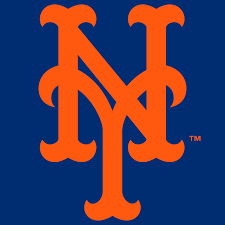
As the Mets move toward the finish line in their search to replace Sandy Alderson as GM, reports are stating that Brodie Van Wagenen, Doug Melvin, Kim Ng and Chaim Bloom are receiving second interviews. It has been a ponderous process for the Mets with rumors, innuendo and the familiar mocking the club must endure as a matter of course.
The inevitable questions about control, inherited staff, financial parameters and how much influence Jeff Wilpon will have will continue regardless of whom the Mets hire.
A total outsider like Van Wagenen might be viewed as a blatant attempt on the part of the Mets to reinvent the wheel, but it does make some sense and could succeed.
Let’s look at why.
Understanding both sides.
Any good lawyer will know how to make the other side’s argument. As a longtime player agent and co-head of CAA Sports’ baseball division, Wagenen has relationships with every major-league team and its executives. When trying to maximize the value of contracts and endorsements for his clients, he also needs to understand what the other side is thinking. It’s a short step over the velvet rope from being seller to the buyer.
This is not someone who will be parachuting in with theories, demands and expectations without having the faintest clue as to what really happens in the trenches.
He played baseball at a relatively high level.
Van Wagenen played baseball at Stanford University (as a teammate of Astros manager AJ Hinch). He wasn’t great, but he was serviceable. Playing at a Division I school in the Pac-10 – especially a school like Stanford that does not provide academic breaks to its athletes – is notable.
Many front office staffers are inhabiting a persona based on their environment. Chewing dip and carrying around an empty bottle in which to spit the juice does not make one a peer of professional athletes. If anything, it invites eye-rolling and ridicule from those same professional athletes. Similarly, uttering the lingo of athletes and trying to be one of them is transparent and deservedly ridiculed.
No, he did not make it to the major-leagues. He didn’t even play professionally. But as a former player, he will have a well-rounded idea of what it’s like to play and run a ballgame on the field, limiting the reactive know-it-all responses and insecurity that is inherent from those who cannot say the same and find themselves in an undeserved position as a front office boss, top-tier executive, or well-compensated analyst.
Delegation.
It is highly unlikely that Van Wagenen will be in the middle of every single deal big and small and interfere with the heads of the baseball departments.
The best executives are the ones who hire or retain smart people and allow them to do their jobs. If Omar Minaya, John Ricco, et, al. are part of the deal and will not be replaced, Van Wagenen can accept that and let them work without looking over their shoulder, sowing discord, and making passive aggressive maneuvers and statements to undermine them.
Managing the owner.
For an organization like the Mets, with Wilpon insisting that he will be involved, it takes people skills that a player agent must have to nudge him in the right direction without him knowing he’s being nudged. The idea of autonomy is secondary to this peacekeeping nuance.
Younger GMs are looking for autonomy and control in part because it grants them at least three years of on-field results being irrelevant. That’s three years of job security and blamelessness. They’re heavy on data and short on interpersonal skills. That is not an issue with Van Wagenen who understands the numbers, but also knows how to persuade.
The tactics.
There are repeated demands that the Mets tear the entire structure of the organization down to its exoskeleton and start over. Is that wise? With Jacob deGrom, Noah Syndergaard, Michael Conforto, Brandon Nimmo and Amed Rosario among others, the team is not destitute at the big-league level. In the minors, the farm system is better than it was given credit for in preseason assessments.
Certainly, when there is a barren farm system, bloated contracts and declining players, it makes perfect sense to gut it and start over. The Mets are not in that position and hiring Van Wagenen is not only a signal that the Mets are serious about contending quickly, but that the Wilpons are ready to give him some money to spend to make that a reality instead of a bait-and-switch to sell season ticket plans with the same digging through the bargain bin, crafting an “if everything goes right” roster and hoping that it somehow works out.
Salesmanship.
What is an agent if not a salesman?
To take the job, he will need to divest himself of any agent-related interests in the players, but the relationships will remain in place because he got his players paid and because most players will be smart enough to realize that he might turn around and go back to being an agent after his tenure with the Mets concludes. Other organizations will know it too.
***
At first glance, the mentioning of player agents running an organization sounds quirky for its own sake. In the case of the Mets and Van Wagenen, it’s a radical departure from what the Mets and the Wilpons have done in the past and, in the grand scheme, it isn’t such a terrible idea.
